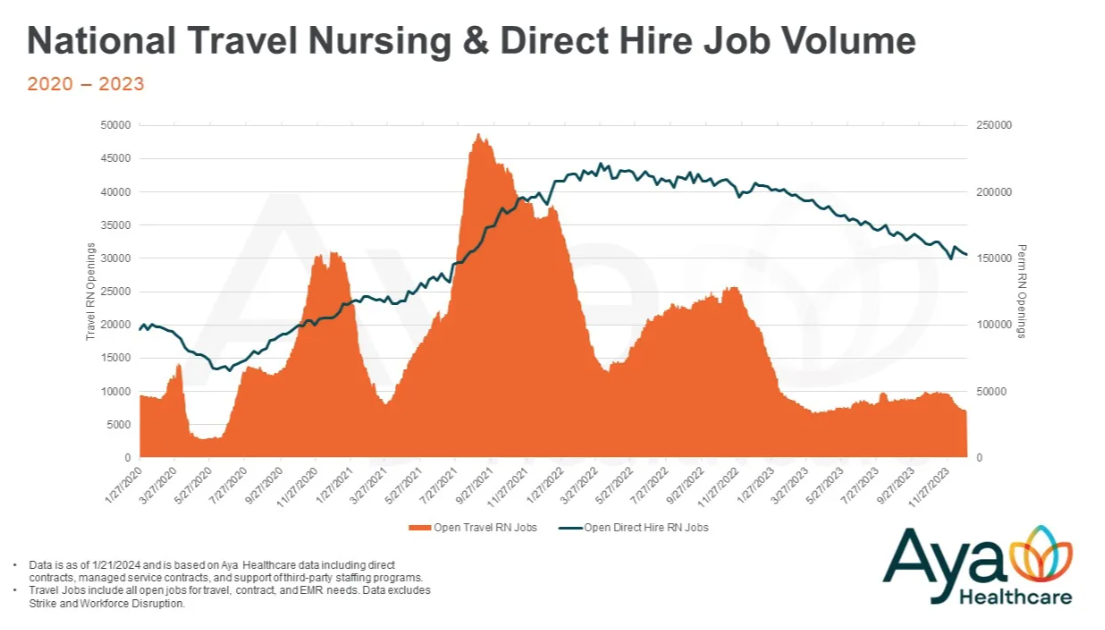MU Health Care hoping to decrease travel nursing staff after large increase post-pandemic
COLUMBIA, Mo. (KMIZ)
MU Health Care is hoping to reduce its travel nursing staff after records show it spent $52.5 million on travel nurses in fiscal 2023.
Records obtained by ABC 17 News show this is up almost $50 million from what the health care system was spending on travel nurses in fiscal 2020.
| Fiscal Year | Amount spent on travel nurses by MU Health Care |
| 2020 | $3.9 million |
| 2021 | $8.2 million |
| 2022 | $26.3 million |
| 2023 | $52.5 million |
The increase in travel nurses began as the industry saw a large number of nurses leave the profession during the COVID-19 pandemic. MU Health Care Chief Nursing Officer Shanon Fucik said this put lots of stress on the workforce.
"We've had to make some hard choices when it comes to allocating resources, but they've all been redirected and ensuring that patient care and patient safety and staff safety is our number one priority," Fucik said.
The Missouri Hospital Association said this struggle was happening all across the state and the nation.
"During the pandemic itself, there was incredible demand for travel nurses to help supplement the care that needed to be provided," said spokesman Dave Dillon.
Data from Aya Healthcare, a nationwide health care staffing provider, shows demand for travel nurses skyrocketed from 2020 to 2021, with fewer than 10,000 open travel positions nationwide at the start of 2020 to almost 50,000 available travel positions in the middle of 2021.
However, that demand began to drop in 2022, with fewer than 10,000 open travel jobs across the nation at the end of 2023.

Dillon said Missouri hospitals had record levels of vacancy and turnover in 2021, which began to get better in 2022 but is still a difficult situation.
"When you don't have (staff), you have to have nurses that come in that are agency nurses," Dillon said. "... they're travel nurses that come in, do a fixed period in the facility and then often move on, and that's less than ideal. It's also extremely expensive."
He said it's expensive because the agency gets a cut of the cost and nurses who travel and work on a fixed timeline require a certain level of pay.
Fucik said travel nurses at MU Health Care are all contracted for 12 weeks and are paid by the travel nurse agency. MU Health Care then pays an hourly contractual rate to the agency.
"We have significantly more travel nurses right now than we would like to have and are actively reducing," Fucik said.
She said MU Health Care had a 23% reduction in salary expenses relating to travel nurses from the last half of fiscal 2023 to the first half of fiscal 2024.
"Agency nurses are definitely more expensive and have had a major impact on our budgeting here at the organization," Fucik said. "So, we definitely look for ways to reduce agency whenever we can through pipeline programs and workforce initiatives here at the hospital."
To recruit and retain more nurses, Fucik said MU Health Care has a strategic plan that involves sign-on bonuses, a Clinical Ladder program and working with the Sinclair School of Nursing.
She said these efforts are starting to pay off, as retention rates have significantly increased over the last year and a half.
Fucik said travel nurses maintain quality patient care, as they are all required to go through onboarding, training and orientation just like traditional nurses. They are also vetted and validated through MU Health Care's Human Resources Department.
MU Health Care also has a Tiger Flex program that Fucik said allows employees to experience the work of a travel nurse on a 12-week contract. However, this is a cheaper option for MU Health Care because it is not paying an external agency.
Dillon said Missouri has also made new investments in nursing schools in an effort to assist the pipeline of nurses.
ABC 17 News has also reached out to Boone Health and the Harry S. Truman Memorial Veterans' Hospital about their travel nurse staffing and budget. Neither was immediately available for comment.
